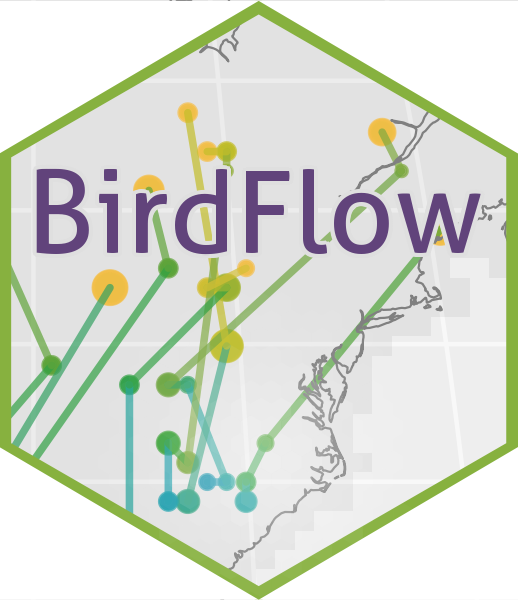The BirdFlow Project

An NSF-funded collaboration between UMass and Cornell to learn about bird migration
The BirdFlow Project
Billions of birds migrate each year in journeys that are largely hidden from human observation, yet critical to the success of bird populations. To understand and monitor migratory species, data and methods are needed that can capture the movements of bird populations across the globe. The eBird citizen science project receives millions of bird observations throughout the year and uses these data to produce detailed weekly abundance maps for hundreds of migratory species around the world. Despite this rich information about bird distributions, scientists lack widespread, detailed data about the migratory routes that link bird populations and their habitats throughout the year. In the BirdFlow project, a team of computer scientists and ornithologists will use citizen science data to create models and algorithms to infer population movements of migratory birds. The models will allow inferences currently unavailable to ecologists at the scale of full populations and flyways, including simulated migration routes and movement forecasts. The resulting data will help address urgent needs in ecology, conservation, and industry, including understanding connectivity between populations and links between migration and evolution, as well as applications to disease spread and aviation safety. Visualizations and educational material will be created to inspire the public and raise awareness about biodiversity and ecosystem health.
The BirdFlow project will develop models and algorithms to infer bird movements from citizen science data. Data products from the eBird Status and Trends project will provide information about the weekly distributions of bird populations, and optimization problems will be formulated to infer population movements that are consistent with the weekly distributions and approximately minimize energetic costs. Individual tracking data and other evidence will be used to validate and improve models. Technically, the work will build on an emerging line of research that uses probabilistic graphical models to learn about probability distributions over many variables from partial information, such as noisy estimates of the distributions of individual variables. Software and data products will be created that will allow scientists to use pre-fitted BirdFlow models to simulate synthetic migration routes and create movement forecasts for species of interest. The project team will use BirdFlow to conduct ecological research about patterns and drivers of migration in the Western Hemisphere.
Project Team
BirdFlow is a joint project between the University of Massachusetts Amherst and the Cornell Lab of Ornithology. The project team is
- Daniel Sheldon, UMass (PI)
- Adriaan Dokter, Cornell (Co-PI)
- Andrew Farnsworth, Cornell (Co-PI)
- Daniel Fink, Cornell (Senior Personnel)
- Benjamin Van Doren, University of Illinois at Urbana-Champaign (Assistant Professor)
- Miguel Fuentes, UMass (Graduate Research Assistant)
- Ethan Plunkett, UMass (Software Lead)
- Dave Slager, Cornell (Postdoctoral Associate)
- Yuting Deng, Cornell (Postdoctoral Associate)
- Yangkang Chen, University of Illinois Urbana-Champaign (Graduate Research Assistant)
Funding
BirdFlow is funded by the US National Science Foundation
Publications
- Fuentes, Miguel, Benjamin M. Van Doren, Daniel Fink, and Daniel Sheldon. “BirdFlow: Learning seasonal bird movements from eBird data” Methods in Ecology and Evolution 14, no. 3 (2023): 923-938. https://doi.org/10.1111/2041-210X.14052
- Rohwer, Vanya G., Samantha Hagler, Benjamin M. Van Doren, Miguel Fuentes, and Shawn M. Billerman. “Lower survival of hybrid grosbeaks, but not towhees, suggests a molt divide disfavors hybrids” Evolution, qpad112 (2023). https://doi.org/10.1093/evolut/qpad112
Media
- Birdwatching Is Going High-Tech Thanks to This New Tool, The Daily Beast, Feb 1, 2023
- No one can predict exactly where birds go, but this mathematical model gets close, Popular Science, Feb 1, 2023
- An AI that sees bird futures, Sierra Club, Mar 4, 2023
- BirdFlow AI “Connects the Dots” in Massive, Volunteer Database to Track Migratory Birds , Pittsburgh Supercomputing Center, May 10, 2023
Software
- BirdFlowR: R Package for using BirdFlow models (documentation).
- BirdFlowPy: Python software for fitting models.
- BirdFlow Model Collection: Models for use with BirdFlowR.